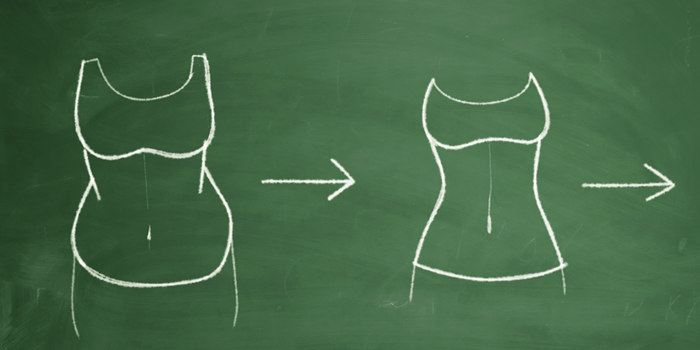
Setting yourself up for success is important to obtaining your goals. We tend to reach way too far and set unrealistic goals and timelines, resulting in failed attempts. As a nutrition coach, I see this all the time with people wanting to diet down; they set a weight loss goal that doesn't make sense within a timeline that makes it even more impossible to obtain. I am going to go over how to know when it's the right time to diet and how to set things up to be successful.
When I get a potential client reaching out to start dieting, I ask three questions that are crucial for moving forward:
- How many calories are you currently consuming?
- Are you in a deficit? If so, how long have you been dieting?
- When is the last time you've had blood work?
These three questions tell me if they are ready to diet.
If a client has been dieting for a long time or they are life-long dieters, this is not a good sign that they are in a good place to diet. Most of the time, if a client falls into this category, they have put their body through a train wreck. Therefore, a client could have a lower resting metabolic rate, ghrelin is high (hunger hormone making adherence hard), and leptin is low (satiety hormone that signals you are no longer hungry). The client probably lost a bit of muscle from over dieting, and other hormones drop. Also, the client becomes less active, so there's less to pull from to keep making progress toward the weight loss goal.
RECENT: 3 Major Principles of Weight Loss
1. How Many Calories Are You Currently Consuming?
For long-term dieters, it is extremely important to work this client back into maintenance or a slight surplus while focusing on performance for a while. At this calorie threshold, it will allow their body to get back into a good position—a healthy position to start dieting. For men, this can look like weight progressions, increased motivation, and recovery. For women, their menstrual cycles will return to normalcy, along with the same indicators as the men. It may be hard to convince the client to add food and gain weight since they came to you to lose weight. Communication is key. You must do what's best for the client, even if they don't hire you because of it.
2. Are You in a Deficit?
If the client's calories are lower than the energy availability (EA), then the body is already starting to "shut down" as previously stated. EA represents the amount of energy to fuel the body at any given time, EA= (Calorie Intake – Exercise Energy Expenditure)/LBM. If EA falls below a certain level, the body will adapt, shutting down non-essential processes to ensure that there is sufficient energy to maintain the essential ones (McDonald, 2017). You also have to understand how weight loss works. Creating an energy balance is the key to dropping weight. It takes a 3500-calorie deficit to drop one pound of fat. Divide that by seven days of the week, and you have to create a 500-calorie deficit a day if the goal is to drop one pound of fat per week. This deficit will come at an increase in exercise/activity and or a drop in current calories.
If your calories are already low, you have to allocate all of those calories coming from exercise. This is only the first adjustment required, so as you can see, this gets ugly fast for long-term sustainable weight loss. You will need to do the same thing as I described above for the life-long dieter. Increasing calories and decreasing activity will set them up for a very successful diet. It will also allow them to just work on performance improvements and learning how to train hard, which will only help them improve their ability to retain muscle and maybe even gain a little in a deficit depending on where they are starting.
3. When is the Last Time You've Had Blood Work?
Blood work is the next most important thing. Blood work shows you where the client's thyroid, testosterone, estrogen, and progesterone are, which is extremely important when it comes to starting a diet, whether natural or enhanced. If enhanced, other blood work will be necessary as well. You want the body to be in the most ideal situation possible to start a diet. As you diet down, you start to decrease your thyroid and testosterone, so if it is already low, you will be fighting an uphill battle. If estrogen and progesterone are off at the beginning, either too low or too high, it can make dropping fat nearly impossible. I always advise getting those markers in place before we start a diet. A lot of the unhealthy blood markers that can occur can get dramatically improved just by dieting, so we don't need to try and fix those before starting.
Conclusion
It's a tough spot to be in as a coach to tell a prospective client they are not ready to diet. You can see exactly why it is crucial to do. Not only will you be creating a more optimal position to have a successful diet and an easier diet, but you will also be putting their health in a high priority. This decision alone will show them you care and that you want the best for them. If that is always the goal of a coach, you will do just fine.
Don't worry about losing money because you are honest. As an athlete reading this, please take the time to create the most optimal environment for your diet to be successful. Don't screw yourself up for a long time. If you don't take the time to do it right, you will regret it later—you may spend one to two extra years fixing the issues instead of the four to six months it would have taken you in the beginning.
Reference
- McDonald, L. (2017). The women's book: A guide to nutrition, fat loss, and muscle gain.
Tony Montgomery lives in Tampa, Florida. He studied exercise science at Florida Atlantic University. Currently, he's pursuing his master's degree in exercise science at the University of South Florida. He owns Strength Union, Team Phoenix Performance (an online coaching company), Subject Zero Supplements, and Coaches Corner University (an online education platform). He competed in strongman and powerlifting, where he's hit a 2,001-pound total in the 242-pound class with wraps. Now he competes in Brazilian Jiu-Jitsu and coaches athletes. He also served four years in the United States Marine Corps with 2nd Recon Bn.










2 Comments